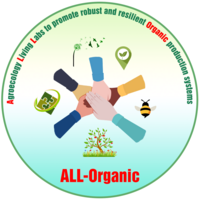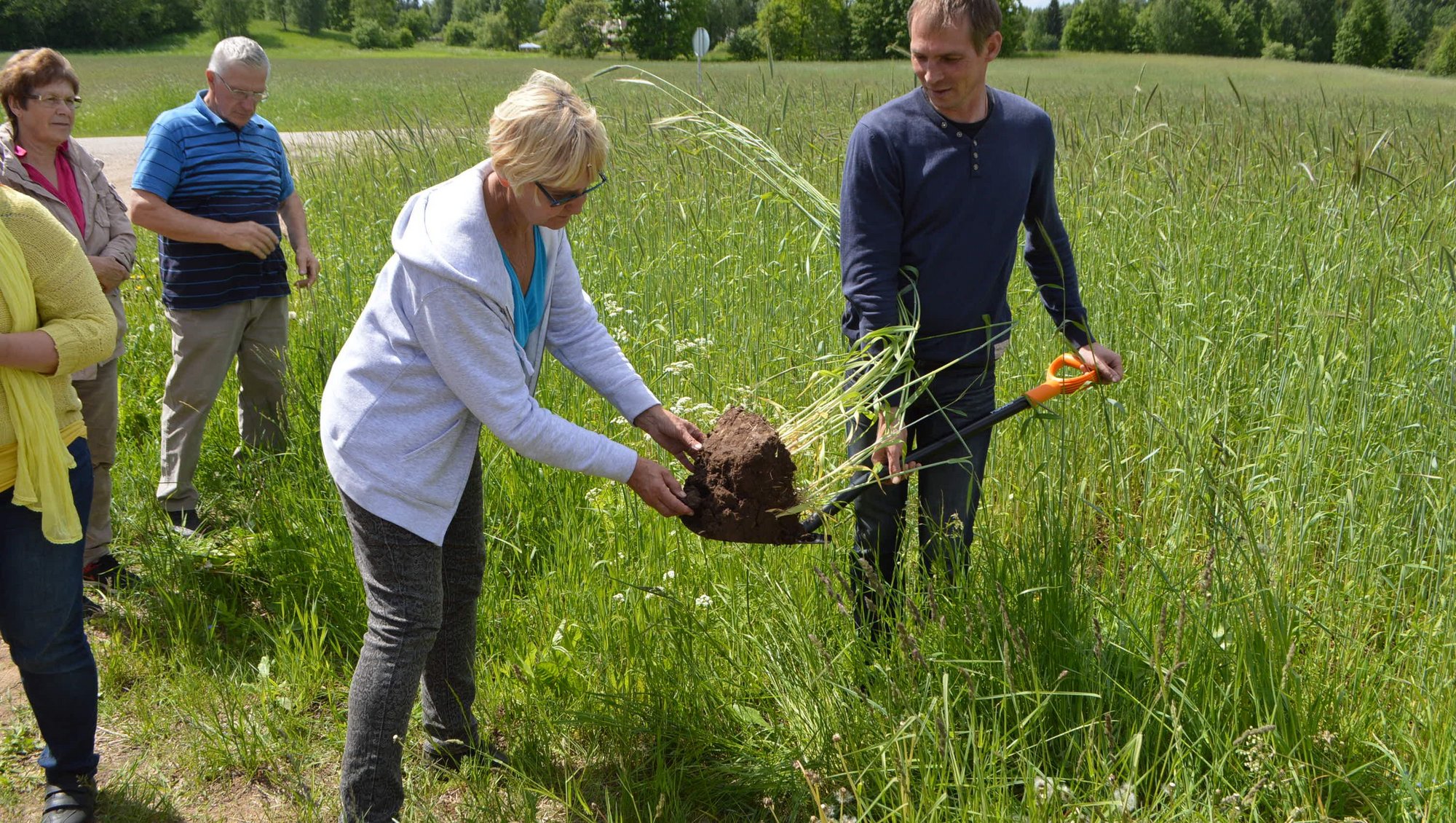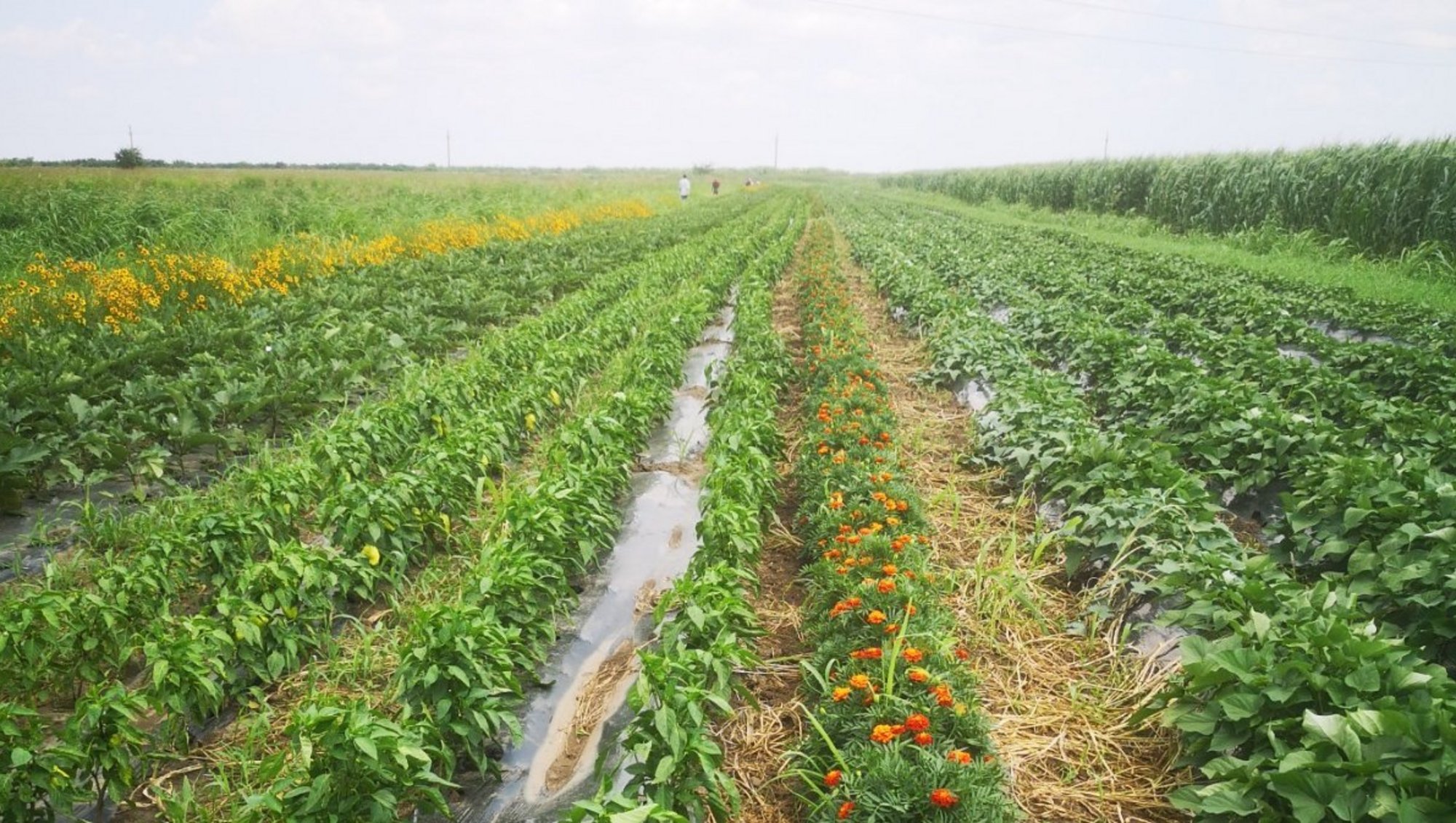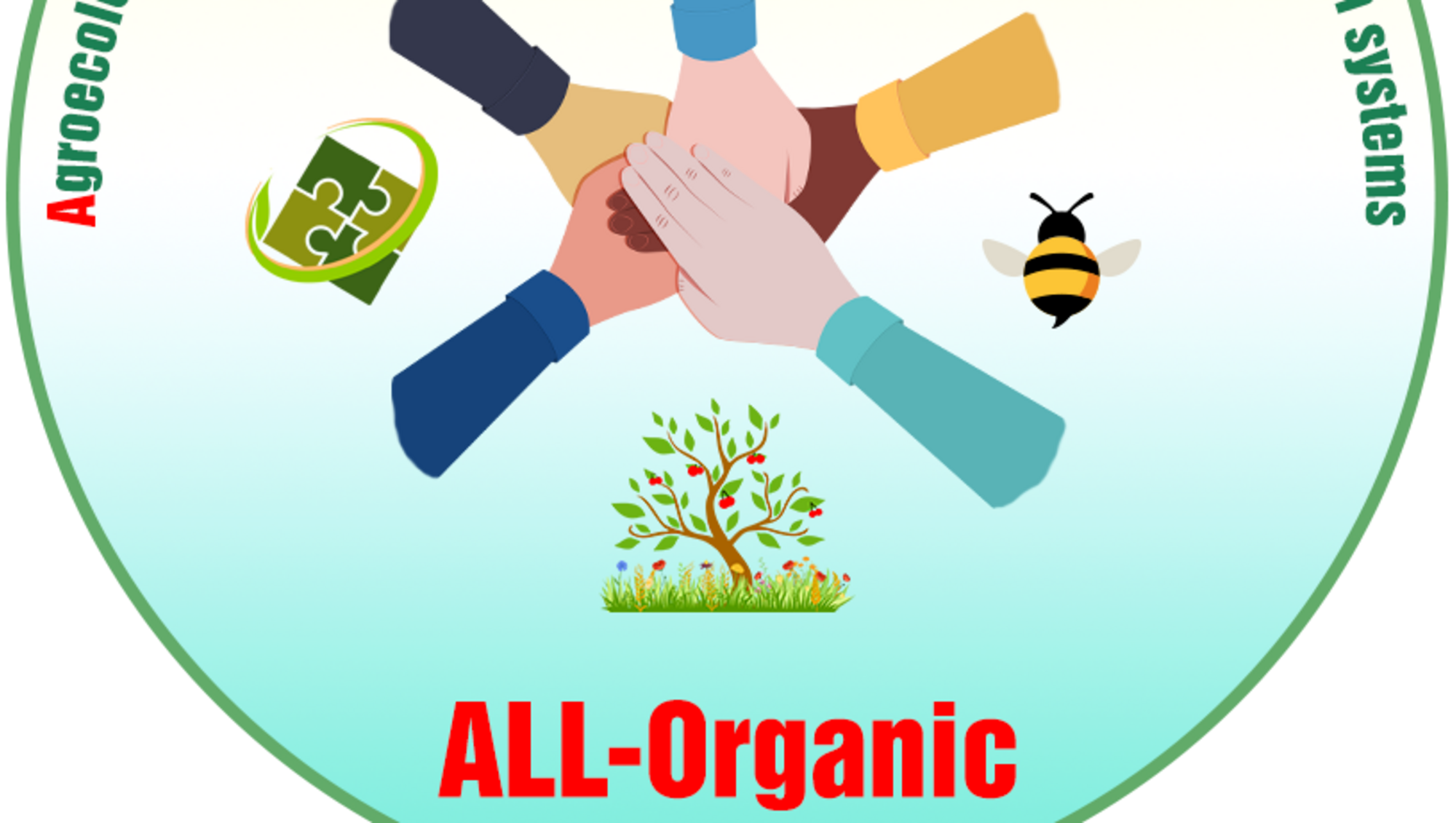ALL-Organic
Agroecology Living Labs to promote robust and resilient Organic production systems
The ALL-Organic research project will promote a functional network of experiences, models, and systems able to support the development of diversified organic food systems, with the aim of implementing robust and resilient organic crop productions, by involving food system actors from field to fork.
The integration of agroecological approach with the enhancement of functional agro-biodiversity in organic farming systems is seen as a key lever for the development of sustainable, robust and resilient agriculture productions. This requires transformative changes based on the redesign of the organic agroecosystems to increase their spatial, temporal and genetic diversification in order to amplify ecosystem services. But more knowledge on the relations among diversification components and their agro-environmental and socio-economic performances is needed to support system redesign.
Aim
The project aims to demonstrate the environmental and socio-economic quality performances of diversified agroecologically centered organic farming systems, confirming their pivotal role in the transformative pathways for transformation of food systems towards sustainability and to catalyze consumers awareness on the overall advantages of diversified system based organic food and produce evidence-based recommendations targeting different socio-economic group at national, transnational and European level.
Consolidating the Agroecology Living Lab approach, seven partners form five CORE Organic Countries of Europe and North Africa will join their efforts to test the hypotheses that the implementation of co-designed, locally developed and adapted diversified organic cropping and farming systems is an effective strategy to:
- exploit (bio)diversity functions
- reduce the impact of pests and diseases mitigating the dependency from off-farm plant protection product
- efficiently use of on-farm resources and by-products reducing wastes and nutrient losses, and to
- mitigate the impact of climate change guaranteeing the stability of yields
Expected output
The project will lead to both technical and organizational innovations that will stimulate the development of new business models, different from those based on specialized and industrial agri-food systems at different levels:
- Primary production: the network of ALLs will implement a wide range of diversification strategies under different production systems and diverse biogeographical conditions
- Value chains: the transition towards more sustainable, resilient and diversified agri-food systems promoted by ALL-Organic represents new business opportunities and challenges for ALL actors such as processors, providers or cooperatives, especially in a period characterized by a growing market demand for organic, healthy, and environmental-friendly products.
- Consumers: ALL-Organic aims to increase the awareness of the consumers about the importance of diversification through their engagement in co-learning processes.
- Policy makers: The project will have an impact on the agricultural policy process as it will propose a roadmap for policy makers and agri-food system actors with recommendations on economic and organisational incentives for the promotion of diversification strategies and agroecological practices in organic production systems.
- Society as a whole: ALL-Organic will have a great impact on society as a whole, as it will support the redesign of the organic production system based on a process of social transformation where actors will be directly involved in scientific knowledge creation. The Agroecology Living Lab approach implemented by the project will encourage dialogue between multiple sources and types of knowledge, as well as support learning and capacity building to enable an effective cooperation among researchers, producers, farmers and other relevant actors that will continue even after the end of the project.
The project step by step
ALL-Organic wants to:
- exploit (bio)diversity functions in organic farming management benefiting from the potential services and functionalities provided by balanced and diverse spontaneous flora and soil microbial communities
- reduce the impact of pests and diseases, mitigating the dependency from off-farm plant protection products (PPPs), thus responding to consumers’ expectations of high-quality and healthier foods
- promote the efficient use of on-farm resources and by-products and reconsider the use of off-system inputs, reducing wastes and nutrients loss from the systems;
- mitigate the impact of climate change on organic plant-based cropping and farming systems and promote their progressive adaptation to the adverse and erratic environmental conditions guaranteeing the stability of yields
- demonstrate environmental and socio-economic quality performances of agroecologically centered organic farming systems, confirming their pivotal role in the transformative pathways for transformation of food systems towards sustainability
- set up knowledge hubs aimed at enhancing the diffusion of best practices, the socialization of failures, the uptake of innovations among farmers, technicians and researchers
- catalyze consumers awareness on the overall advantages of diversified system based organic food and produce evidence-based recommendations targeting different socio-economic groups at national, transnational and European level.

Coordinator & Partners
Coordinator
Stefano CANALI - Research Council for Agricultural Research and Economics, Research Centre for Agriculture and Environment (CREA-AA) stefano.canali@crea.gov.it
Partners
- Stefano Canali, Research Council for Agricultural Research and Economics, Research Centre for Agriculture and Environment (CREA-AA), Italy
- Adam Kleofas Berbeć, Institute of Soil Science and Plant Cultivation (IUNG-PIB), Poland
- Ion Toncea, Asociația Română pentru Agricultură Durabilă (ARAD), Romania
- Liina Talgre, Estonian University of Life Sciences (EULS), Estonia
- Bilal Rahmoune, École Nationale Supérieure Agronomique (ENSA); Algeria
- Hayet Meamiche, National Institute of Agronomic Research of Algeria (INRAA), Algeria
- Luca Colombo, Italian Foundation for Research in Organic and Biodynamic Agriculture (FIRAB), Italy
Funding institutions
- Ministry of Agricultural, Food and Forestry Policies (MIPAAF), Italy; The National Centre for Research and Development (NCBR), Poland; The Executive Agency for Higher Education, Research, Development and Innovation Funding(UEFISCDI); Romania; Ministry of Rural Affairs (MEM), Estonia; Ministry of Higher Education and Scientific Research (MESRS), Algeria




